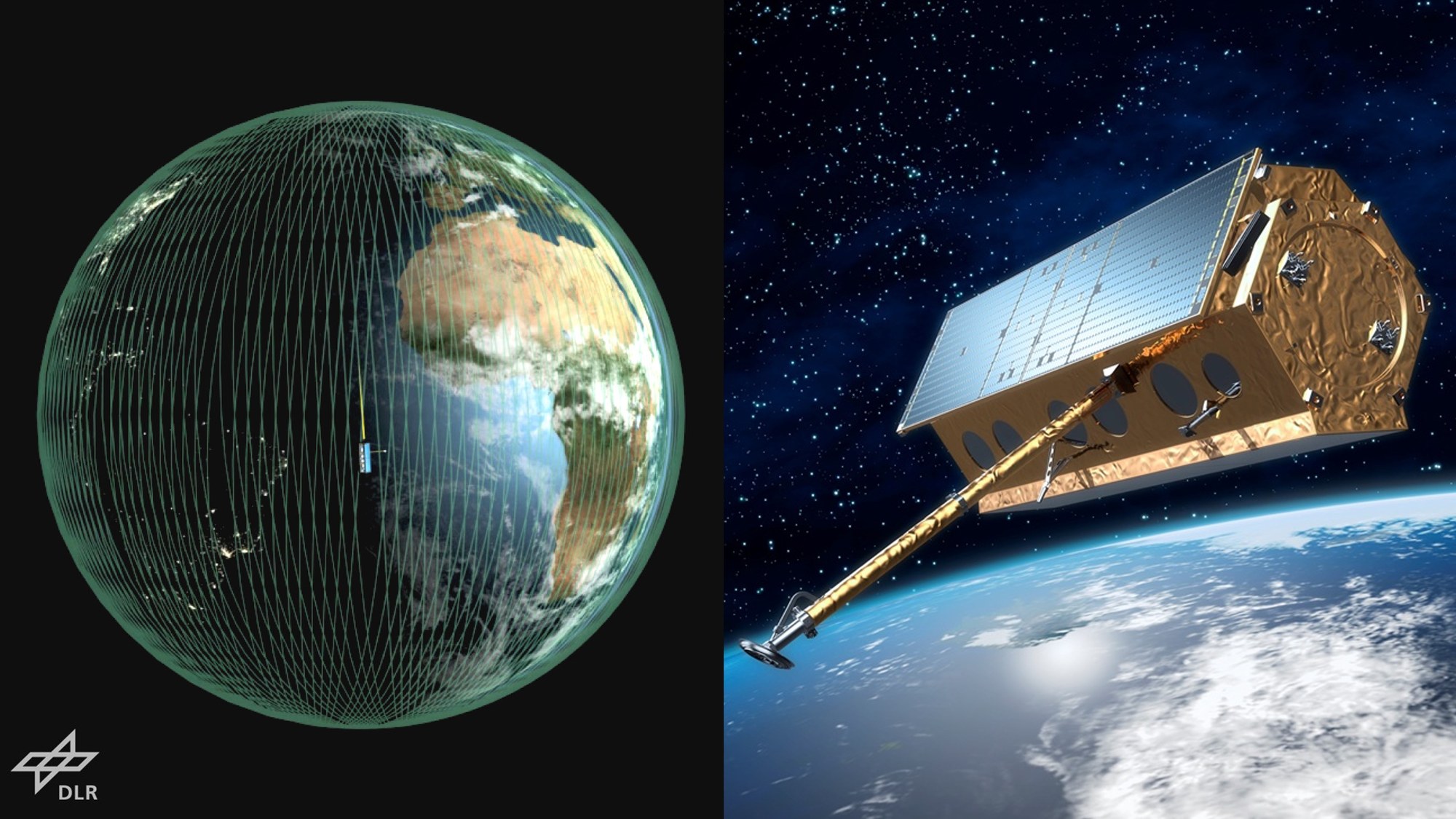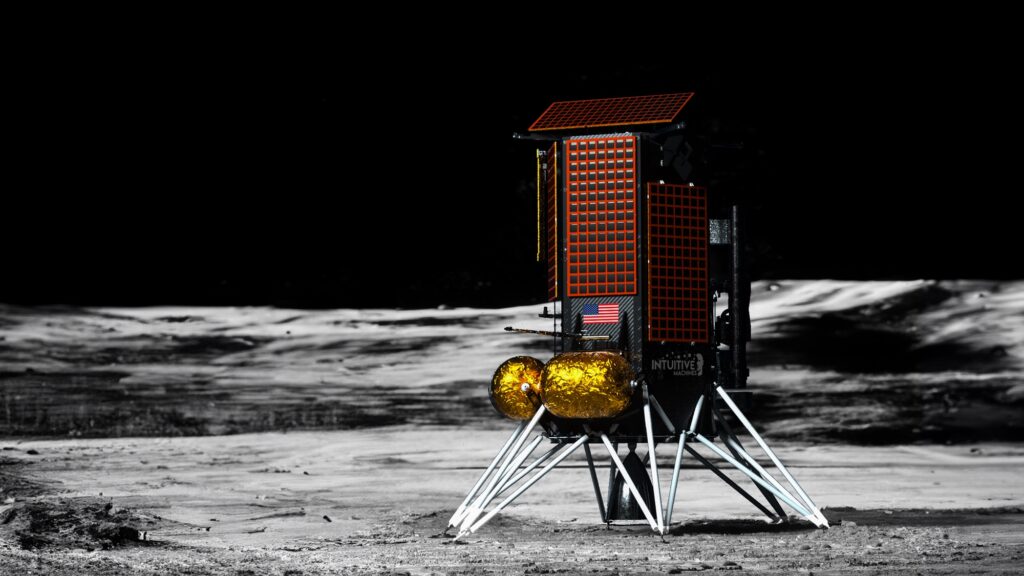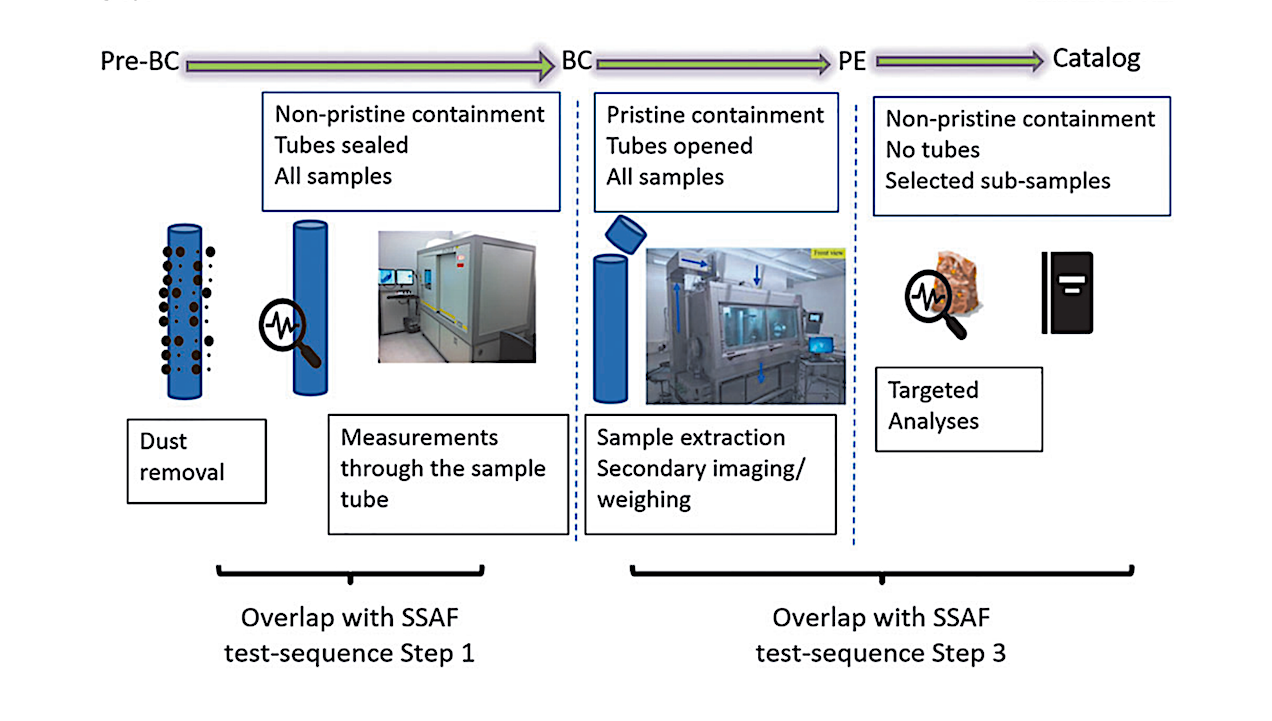Now Reading: Analysts question Germany’s request for defensive and inspector satellites
-
01
Analysts question Germany’s request for defensive and inspector satellites
Analysts question Germany’s request for defensive and inspector satellites


LONDON — The German Aerospace Center (DLR) is looking to purchase satellites capable of jamming other spacecraft and inspecting objects in space, and it wants to do so on tight deadlines.
But experts are skeptical whether Germany could achieve the ambitious goals including launches on a yet unflown domestic launcher after years of underinvestment into its private space sector.
In August, the DLR, Germany’s equivalent to NASA, issued two requests for information for the procurements of satellites — one for a satellite with active defense capabilities, and another for an inspector satellite. The agency is mostly known for civilian space projects but the announcements suggest a pivot toward more dual use applications. Germany recently unveiled plans to invest an unprecedented 35 billion euros ($40.44 billion) into military space assets in the next five years.
Germany intends for both satellites to have the ability to maneuver in orbit using on-board propulsion and technology for operations in close proximity to other spacecraft. The request calls for them to be delivered within 11 months from the potential contract signing and launched on a “national launcher.”
DLR didn’t respond to SpaceNews’ request for comment, but analysts said the move underscores Germany’s growing understanding of the need to bolster its space defense capabilities in light of rising geopolitical tensions with Russia and China. However, they said the new goals are ambitious and will likely come with challenges.
“This is very much part of the new political will to actually set Germany up for more resilient infrastructure,” Julianna Suess, a security policy researcher at the German Institute for International and Security Affairs, told SpaceNews. “But the problem is that we have underinvested for decades. Now, the German administration wants to invest all this money with these really tight timelines and that might be difficult to execute.”
The DLR requests for information are open to companies regardless of where they are headquartered or operate. However, independent analyst Christian von der Ropp told SpaceNews that similar, non-open calls have been allegedly circulated by the Bundeswehr, Germany’s armed forces, to local satellite manufacturers — suggesting a preference for local providers.
The DLR requests for information specifically invites start-ups and small and medium enterprises to submit their proposals. But delivering the requested capabilities on such short timelines might be a bit of moonshot for the German aerospace sector.
Few players worldwide have flown maneuverable satellites in orbit. Astroscale, headquartered in Japan but with significant presence in the U.K., performed a successful close-proximity inspection of a discarded rocket stage with its ADRAS-J mission in 2024. The company’s ELSA-d mission undertook several successful captures of a simulated piece of space debris in 2021. The ION space tug by Italy-headquartered D-Orbit has performed multiple missions delivering small satellites into precise orbits but doesn’t have systems for close-proximity operations. Switzerland-based ClearSpace is working on an active space debris removal mission for the European Space Agency expected to launch in 2029, but has not yet flown any technology in space. Outside of Europe, Northrop Grumman has proven its in-orbit servicing system, the Mission Extension Vehicle, for operations in geostationary orbit. Lockheed Martin has also demonstrated close-proximity operations in geostationary orbit with a set of cubesats.
“I don’t think you can build these capabilities fully sovereign and without foreign participation,” von der Ropp said. “ [The German government] will have to be pragmatic because you won’t be able to deliver anything if you are too strict with this domestic share. But I expect them to have incentives for localization.”
Von der Ropp was particularly skeptical of the requirement for a national launcher, stating that none of the German startups working on micro-launchers will be ready to offer a reliable ride to space any time soon.
“You don’t want to risk blowing up these prototype satellites by testing them on an unproven launch vehicle,” he said.
German companies Rocket Factory Augsburg, HyImpulse and Isar Aerospace are developing small satellite launchers but they haven’t yet completed a successful orbital flight. But von der Ropp also questioned the suitability of Europe’s new heavy lifter, Ariane 6, which so far has performed three flights. Europe’s smaller launcher Vega suffered significant problems in the past five years and was grounded for two years after the 2022 launch failure that led to the loss of Airbus’ Pleiades Neo high-resolution Earth observation satellites.
“I see them launching on SpaceX or Rocket Labs,” von der Ropp said. “There is no capacity, no proven track record in Europe right now.”
Von der Ropp said the DLR requests for information are a “warning shot” and an attempt to send a signal to the adversaries. He warns that, at the moment, Germany is largely “deaf and blind” in space and heavily dependent on American data.
Currently, Germany operates two SatcomBw military communications satellites that reside in the geostationary orbit. The German army also flies the SAR-Lupe constellation of radar spy satellites.
At the GOVSATCOM 2024 conference in Luxembourg, Bundeswehr Major General Jürgen Setzer, unveiled plans to build a constellation of up to 24 military-grade communication satellites to reside in medium Earth orbit. The constellation, which has not yet been commissioned, should be up and running in 2032, and will most likely be funded from the recently announced budget.
Stay Informed With the Latest & Most Important News
Previous Post
Next Post
-
 01Two Black Holes Observed Circling Each Other for the First Time
01Two Black Holes Observed Circling Each Other for the First Time -
 02From Polymerization-Enabled Folding and Assembly to Chemical Evolution: Key Processes for Emergence of Functional Polymers in the Origin of Life
02From Polymerization-Enabled Folding and Assembly to Chemical Evolution: Key Processes for Emergence of Functional Polymers in the Origin of Life -
 03Astronomy 101: From the Sun and Moon to Wormholes and Warp Drive, Key Theories, Discoveries, and Facts about the Universe (The Adams 101 Series)
03Astronomy 101: From the Sun and Moon to Wormholes and Warp Drive, Key Theories, Discoveries, and Facts about the Universe (The Adams 101 Series) -
 04True Anomaly hires former York Space executive as chief operating officer
04True Anomaly hires former York Space executive as chief operating officer -
 05Φsat-2 begins science phase for AI Earth images
05Φsat-2 begins science phase for AI Earth images -
 06Hurricane forecasters are losing 3 key satellites ahead of peak storm season − a meteorologist explains why it matters
06Hurricane forecasters are losing 3 key satellites ahead of peak storm season − a meteorologist explains why it matters -
 07Binary star systems are complex astronomical objects − a new AI approach could pin down their properties quickly
07Binary star systems are complex astronomical objects − a new AI approach could pin down their properties quickly

















